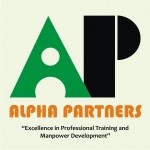|
|
Fraud Detection, Prevention and Control
USD 6,000 |
Venue: Accra - Ghana
Fraud has become the bane of most business organizations especially in this difficult and inclement operating environment. Fraudsters abound both internally and externally, making it imperative for any serious organization to protect itself from being fraud infested. Any organization that fails to protect itself is inadvertently inviting corporate undertakers to move in. Protection against internal or external fraud should no longer be left to internal auditors alone, but should be the responsibility of everybody including top management staff, Accountants, security staff, personnel and admin managers, external forces like the police force, External auditors, security services men etc. In fact, all hands must be on deck to check the menace of fraud in the workplace. In this very important workshop, new strategies in fraud detection, prevention and control will be exhaustively explored.
Content
Introduction to Fraud
- Definition and Types of Fraud: Understand what constitutes fraud and the various types of fraud (e.g., financial fraud, identity theft, cyber fraud).
- Impact of Fraud: Explore the economic, social, and reputational impact of fraud on organizations and individuals.
- Case Studies: Review notable fraud cases to understand common schemes and consequences.
Understanding the Fraud Triangle
- Concept of the Fraud Triangle: Learn about the three elements that contribute to fraud: pressure, opportunity, and rationalization.
- Application of the Fraud Triangle: Analyse how the fraud triangle can be used to predict and prevent fraudulent behaviour.
Fraud Detection Techniques
- Data Analysis and Mining: Utilize data analytics to identify unusual patterns and anomalies.
- Red Flags of Fraud: Recognize common warning signs and red flags of fraudulent activity.
- Forensic Accounting: Introduction to forensic accounting methods to detect fraud.
- Technology and Tools: Learn about software and tools used in fraud detection (e.g., ACL, IDEA, continuous monitoring systems).
Fraud Prevention Strategies
- Internal Controls: Design and implement effective internal controls to prevent fraud.
- Risk Assessment: Conduct fraud risk assessments to identify and mitigate potential vulnerabilities.
- Employee Training and Awareness: Develop training programs to educate employees about fraud risks and prevention measures.
- Ethical Culture: Foster an organizational culture of integrity and ethics to deter fraudulent behaviour.
Fraud Control Measures
- Audit Procedures: Implement regular and surprise audits to detect and prevent fraud.
- Segregation of Duties: Ensure that no single individual has control over all aspects of any significant transaction.
- Whistleblower Policies: Establish and promote whistleblower policies to encourage reporting of suspicious activities.
- Vendor Management: Monitor and manage relationships with third-party vendors to prevent external fraud.
Investigating Fraud
- Investigation Techniques: Learn methods for conducting thorough and effective fraud investigations.
- Interviewing Skills: Develop skills to interview suspects and witnesses effectively.
- Evidence Collection: Understand the proper collection, handling, and documentation of evidence.
- Legal Considerations: Familiarize with legal aspects of fraud investigations, including maintaining the chain of custody and preparing for litigation.
For Whom
Directors, Top Management Staff in Auditing, Accountants, Internal Auditors, Personnel and Administration Managers, Staff of Internal Security Department, Information Technology Managers and indeed all members of staff who can help Management fight fraudulent activities
Training Methodology
The training methodology combines lectures, discussions, group exercises and illustrations. Participants will gain both theoretical and practical knowledge of the topics. The emphasis is on the practical application of the topics and as a result participant will go back to the workplace with both the ability and the confidence to apply the techniques learned to their duties.
Course Booking
Please use the “book now” or “inquire” buttons on this page to either book your space or make further enquiries.
| Accra - Ghana | Jun 30 - 04 Jul, 2025 |
| USD 6,000.00 | (The Workshop fee is $6000 (Six Thousand USDollars) only per participant to cover workshop literature and materials, executive bag, tea/coffee, lunch, photograph and certificate.) |
Chris Onwuasigwe, FCA, FCTI, FIMC – 08033045484 08033045484
Related Courses
Currency Converter





